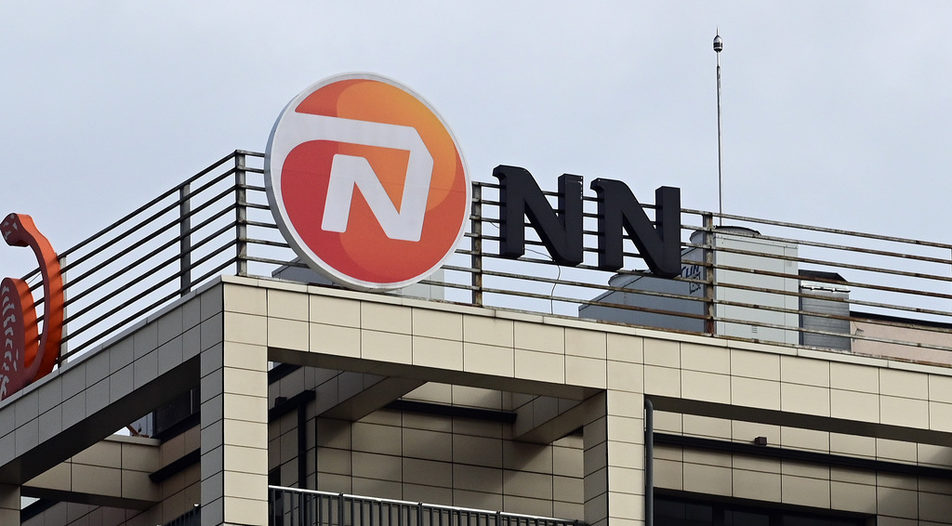On 11 February, Belgium-based financial group KBC reached an agreement to buy Dutch NN Group's pension and life insurance businesses in Bulgaria for 77.7 million euro. Binding offers were submitted in January and candidates could improve their bids by 5 February.
KBC was bidding for NN's pension fund worth 900 million euro in assets and an insurance business with a 14 million euro premium income in 2019 against other financial groups operating in the Bulgarian market such as DSK Bank (part of Hungarian group OTP) and Postbank, sources close to the procedure told Capital Weekly.
NN leaving Bulgaria
NN's potential departure from Bulgaria has been the subject of sporadic rumors for years in the insurance market. It makes sense. The group has 260 billion euro in assets and a presence in 18 countries (mainly in Europe and Japan), and it seems fair that the company's focus would be on the places where it's among the market leaders.
Bulgaria is not one of them.
Here, NN's pension insurance company is fifth in terms of asset value out of nine local players. Acquiring more than its current 10.6% share of the market would be hard or very slow, at least. The reason is that the market is driven mainly by the mandatory supplementary pension insurance contributions (the so-called second pillar of the pension system). Given that most people in the country born after 1959 still don't even know which private pension fund their contributions go into (and don't care to know), significant changes are not expected anytime soon.
Concerning voluntary pension funds (the so-called third pillar), NN Pension Insurance Company has managed to make it to second place with 14% of the market and 42,000 customers. This is a relatively small number, but a premium one: it's made up of people making large and/or regular contributions. Another accomplishment is that the company usually reports the highest monthly average income per account in its universal funds, which means that the customers are among the better-paid in Bulgaria.
The moment to leave was not chosen by accident. So far the pension insurance market has been in the accumulation phase - funds did not pay out pensions, they accumulated resources and managed them. However, starting this year, the first clients of the mandatory universal funds - women born in 1960, will begin to retire. The pay-out process has not been established yet in legal terms, which carries several risks for any company outside the Bulgarian market considering taking on the NN's local business.
KBC: The perfect mix
For KBC Group, pension funds would be the missing piece of the puzzle in Bulgaria. The group has been present in the Bulgarian financial sector since 2007. KBC owns United Bulgarian Bank (UBB) - third by assets in the country, and is also active on the insurance market through companies of the DZI brand.
Regarding general and life insurance, DZI is second in terms of premiums. The group also has factoring, asset management and leasing lines of business and expects to capitalize on synergies with the pension company.
"Today we are taking a next step and adding pension insurance to our already wide-spread presence in Bulgaria. This means that we will be in a position to offer all types of high-end integrated bank-insurance products to our Bulgarian customers," said Johan Thijs, KBC Group CEO, on the day of the announcement of the deal with NN.
The addition of NN's life insurance business to DZI's portfolio will further strengthen DZI's leadership in this market segment. As of September 2020, DZI had a premium income of 85.7 million levs (43.8 million euro) and a 26.2% market share.
How long will it take
The finalization of the acquisition will take months, even though the procedure so far has been taking place at an accelerated pace. Approval for the transaction must be obtained from the Bulgarian Commission on Protection of Competition (CPC) and the Financial Supervision Commission (FSC). KBC has not set a specific deadline but is talking about closing the acquisition within 2021.
What does it mean for Bulgaria's pension insurance market
The KBC acquisition of NN's business is just another example of a Western investor leaving Bulgaria with no new players in sight. On the upside, European financial groups already present in the country are still interested in investing more funds to further strengthen their positions.
There is also good news for clients - the competition among pension insurance companies will not decrease. The market will still have nine players, two of which would be part of the same group. In practice, the new owner comes along with new ambitions, which may lead to better conditions for customers.
In Bulgaria, private pension insurance is a very recent phenomenon - only 20 years old, but it is constantly growing. The reason is that companies accumulate insurance contributions but don't pay out any pensions. In 2019, contributions reached 1.45 billion levs. Private pension funds manage a total of 17.4 billion levs, which makes them a key player in the local capital market, though a part of the assets is invested abroad.
Read more about the challenges in Bulgaria's pension insurance sector here.
On 11 February, Belgium-based financial group KBC reached an agreement to buy Dutch NN Group's pension and life insurance businesses in Bulgaria for 77.7 million euro. Binding offers were submitted in January and candidates could improve their bids by 5 February.
KBC was bidding for NN's pension fund worth 900 million euro in assets and an insurance business with a 14 million euro premium income in 2019 against other financial groups operating in the Bulgarian market such as DSK Bank (part of Hungarian group OTP) and Postbank, sources close to the procedure told Capital Weekly.












